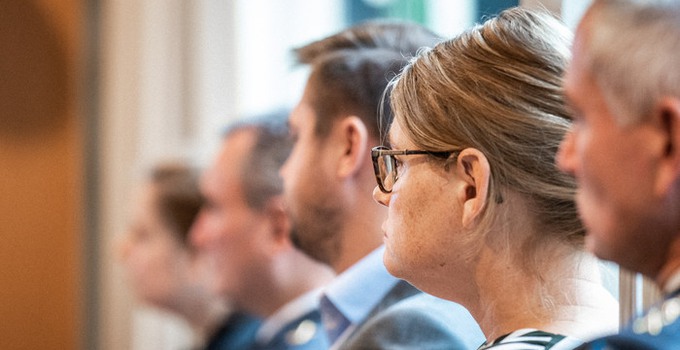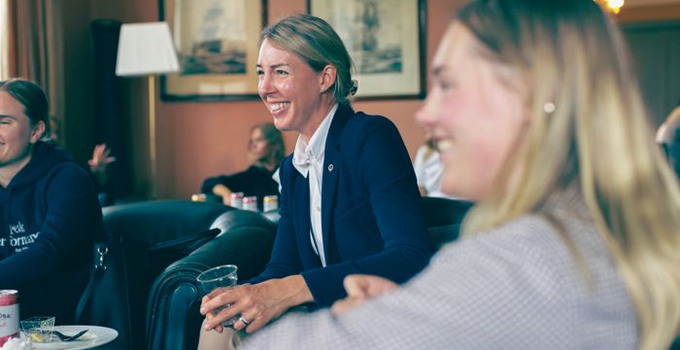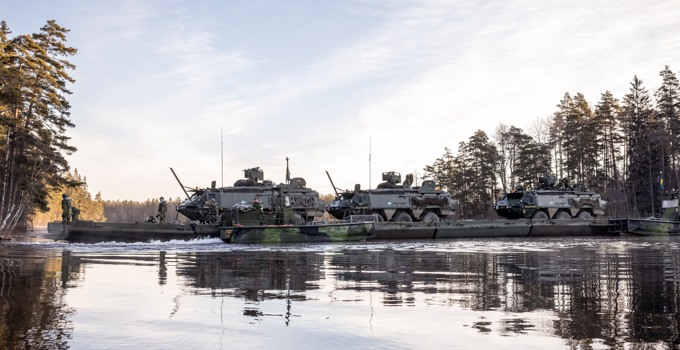
PhD Programme in War Studies
The aim of the PhD programme in war studies is to enable students to conduct high quality research in war studies. The central task is to write an academic dissertation.
We offer a broad education in the theoretical and empirical core areas of war studies as well as in various methods within the subject. The PhD prpgramme has close ties with our research areas.
Four years of full-time study
The PhD programme consists of four years of full-time studies (240 ECTS credits). The central task is to write a doctoral thesis in War Studies under supervision (180 ECTS credits), but coursework (60 ECTS credits) is also part of the programme.
Doctoral position
As a PhD student at the Swedish Defence University you are employed as a university employee during your PhD studies. You will not have to pay any tuition fees, and you will receive salary, social security and an office space. Since you are also a state employee, you are also entitled to several benefits and insurances.
The PhD student position is fully funded throughout the four years. The position may include teaching and other departmental duties up to 20 percent of full time if you and the department so wishes, resulting in the extension of the employment period for a corresponding length of time (to a maximum of five years in total).
The doctoral salaries are fixed by local agreements at the Swedish Defence University. The doctoral salaries increases once the PhD student completes 25 percent and 50 percent of the programme. According to special regulations, Swedish officers are placed with the same starting salary as they have in the Swedish Armed Forces or the Swedish Defence University. The salary for Swedish officers increases in accordance with the local agreement for PhD students.
Supervision
Each PhD student is assigned a main supervisor and a co-supervisor. Supervisors are appointed in consultation between the PhD student and the Director of Doctoral Studies after admission to the programme. This means that potential supervisors do not need to be contacted before applying. Admitting PhD students to the department is a faculty responsibility, and no single supervisor can admit students to the programme.
Courses in the doctoral programme
The first year includes four mandatory courses:
- War Studies: Theories, Development and Modern Research Debates (15 credits)
- Research Methods in the Study of War, Security and Crisis (15 hp)
- Research in Sensitive Contexts: Ethics and Secrecy (7.5 credits)
- War Studies, advanced course (7.5 credits)
The programme also includes 15 credits of elective courses, at the Swedish Defence University or other universities. Examples of elective courses in War Studies at the Swedish Defence University (may vary):
- Case Study Methods and Process Tracing (reading course)
- Connectivity and Combat: War, the Media and the Contemporary Information Ecology
- Militarism and Militarisation in the Study of War: Conceptual Debates (reading course)
- NATO: Organisation, Community, Actor
- Interpretivist Research Traditions and Methods (reading course)
- Russian Information Warfare: General Principles and Contemporary Practices (reading course)
- Scholarly Debates in War Studies: Civil War and Military Interventions
- Scholarly Debates in War Studies: Gender, Peace and Security
- Scholarly Debates in War Studies: Modern Warfare
- The Practice of Soldier-Scholars
- War and Society
- When War Comes to the City: Urban Wars and Urban Warfare (reading course)
Dissertation
The dissertation can be written as a monograph (i.e. a cohesive book) or as a compilation thesis, including four articles/texts and an introductory chapter (so called kappa).
The PhD students are expected to present their dissertation work for the faculty at three occasions during their PhD programme: the PM-seminar (at the beginning of year two); the midterm seminar (approximately halfway through the education); and at the final seminar (when around 80 percent of the dissertation is completed). One of the professors of associate professors of the department decides when the manuscript is ready for public defence.
The PhD student plan their dissertation work together with their supervisors. The research often include field trips or other studies abroad. Students keep their salary during such research trips, and they also have access to a research budget of up to 30 000 SEK/year to cover costs for travel, literature and other research related costs. Additional expenses needs to be financed with external scholarships.
Public defence
The doctoral studies ends with a public defence of the PhD dissertation. An external opponent is invited to discuss the dissertation with the PhD student, which usually takes about two hours. Thereafter, the discussion is opened up for questions from the audience. When the discussion is over, a grading committee, including three professors or associate professors, decide if the dissertation passes or not.
Security clearance and wartime organisation
Research and education at the Swedish Defence University may in some cases involve confidential information. An employment at the Swedish Defence University may therefore in some cases involve security clearance in accordance with the Security Protection Act (2018:55). This would include a security interview and, in some cases, a routine register check by the Swedish Security Services.
The Swedish Defence University is tasked with keeping its operations going at heightened or highest readiness. Therefore, we have established a war organisation which will be set up for most of our peace time staff. An employment at the Swedish Defence University may therefore also include wartime placement. The Swedish Defence University’s war organisation is the same as the regular peace-time organisation and those employees who get wartime placements do it at the university in their regular, peace-time assignment. This means that you, in case of heightened or highest readiness, would continue to work at the Swedish Defence University.
More about the PhD programme and our research
Admission to the PhD programme in War Studies
Admission to the PhD Programme in war studies occurs once a year. Open PhD student positions are announced at the end of May/early June every year, and the deadline for applications is usual...

Handbook for doctoral studies
Enrolment in a doctoral programme entails dedication to a research project that ultimately leads, under supervision, to a doctoral degree. The doctoral education includes courses and the wri...

Our research in War Studies
War Studies is a social science whose central object of study is war and the use of force.


